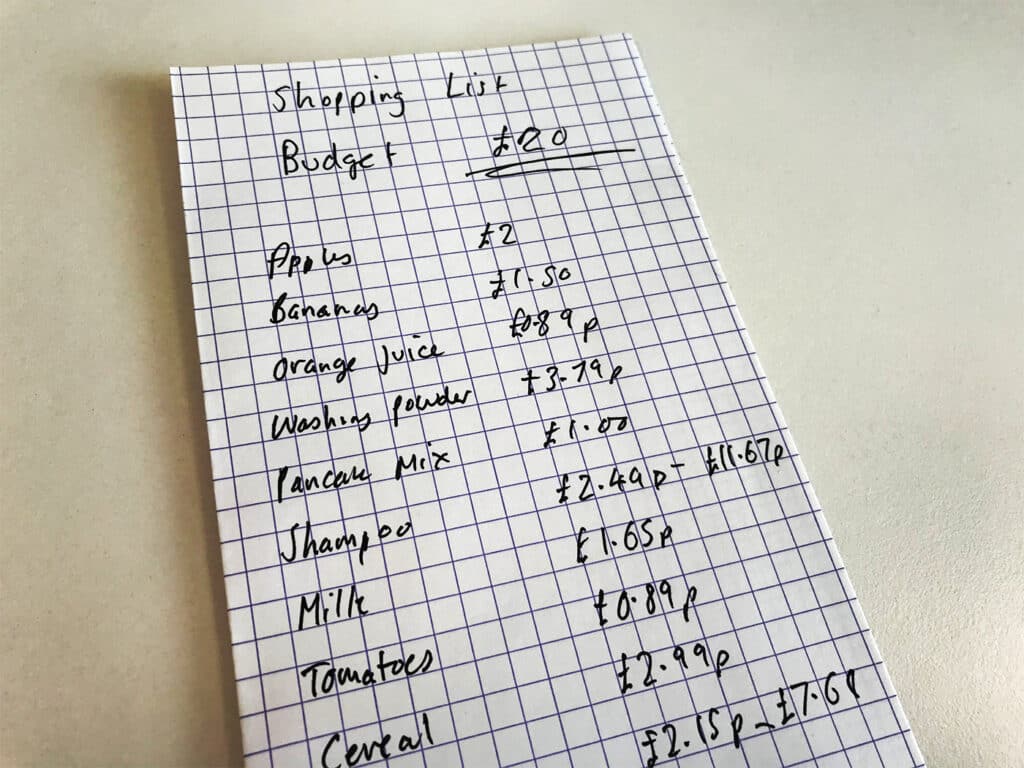Tell us about yourself and your role with Oxbridge.
My name is James, and I started working for Oxbridge last summer. I initially began writing some of the assessments for the A-Level Maths course, as I’ve wide experience in Mathematics. At the moment, I’m updating GCSE Maths to the latest specs and I’m also tutoring Oxbridge students in maths, too.Have you always been drawn to maths as a subject?
I've always liked the subject, yes. Although my first degree was in physics. What drew me to maths is that you can do it without recourse or reference to anything else. You can literally do it with a pencil and paper. It doesn’t rely on any contextual referencing, and you could argue that it’s unbiased, which I think is quite nice. The unbiased nature of maths is what led to me completing a PGCE in the subject.Have you ever branched out and learned a new skill?
When I was younger, I lived in Germany, taking in the culture and learning the language, and I worked hard. It’s there where I studied a distance degree in Law, which kept me grounded and connected to England. Don’t get me wrong, my passion has always been maths, and I had no intention of becoming a solicitor. Law and justice are fascinating areas, and I enjoyed studying them. Isn’t that what learning is all about? So, I know exactly what our distance learning students are going through because I’ve been there, too. Distance learning was a great way to learn something new. It gave me independence and freedom to work on my terms. In fact, my learning experience is a factor in becoming a distance learning tutor.What's it like being a maths expert with a degree from the University of Oxford?
I don’t think it’s that different from being a maths expert with a degree from anywhere else, to be honest. Of course, the Oxford name bears a level of prestige, which can help you stand out. But studying there doesn’t necessarily mean you’ll become a better mathematician. However, it was an interesting time studying at the country’s oldest university. I applied thinking I wouldn’t get in, but I did, and it paid off. [caption id="attachment_77634" align="alignright" width="434"] James spent a good portion of his life in Germany - enjoying the culture, and learning a new language. It's here where he first fell in love with distance learning when studying for his law degree.[/caption]
James spent a good portion of his life in Germany - enjoying the culture, and learning a new language. It's here where he first fell in love with distance learning when studying for his law degree.[/caption]
What skills do you bring to the table as a maths tutor?
I’ve taught adults and teenagers, working in classrooms and distance learning environments. I’ve even trained teaching assistants who needed to get a Maths GCSE in order to qualify and start their position. Teaching for numerous years, I’ve become good at spotting tell-tale signs, strengths and weaknesses. For example, careful analysis of student work often revealed that their methods for solving problems were making maths hard. Knowing this, I’d reinforce those areas by rebuilding the foundations step-by-step.How do you use your knowledge to write courses?
It’s about building the rudiments and guiding learners with examples. When I’m writing, I’m thinking of the best way to steadily build knowledge as they progress. There’s nothing worse than when learners confront problems they can’t overcome. It means the writer has failed in building that knowledge and so the learner is put off. In essence, it’s about taking baby steps. I believe the technical term is scaffolding.How do you build scaffolds and still meet the standards expected by professional bodies?
I create content in a way that enables learners of all abilities to reach a level at which they can pass an exam. It’s about building on key foundations and giving learners the tools to reach their potential. If a learner has the capacity to achieve higher grades, courses are written in a way that enables them to do so. Scaffolding is important in maths because, for example, you can’t really do multiplication until you know how to add up. All of maths is like that. What comes later relies on everything that comes before.Building foundations. All maths is like that. What comes later relies on everything that comes before
What’s it like sitting on the other side of the fence, tutoring instead of being tutored?
There’s an old cliché about learning from your students, but it’s true. I think sometimes the struggles students go through actually form your understanding, even after you’ve been teaching it for decades. I never rest on my laurels; teaching is a privilege, and so I use every day I get to learn something new.Are there any areas or standards in maths that could be improved now you’re a tutor?
The syllabus and specifications for GCSE Maths and A-Level Maths are already changing and are more challenging. Nationally, they’re raising standards and criteria for success, which is reflected in course material and exam papers. That said, grade boundaries have come down. The idea is that the same proportion of learners are getting the grades but the level of maths they’re doing to get them is higher than before. Standards are rapidly improving. For example, exam questions are becoming less formulaic and harder to predict. The new standards set realistic expectations for students, so it’s not about revising previous mock papers but learning all core aspects of maths to tackle a varied exam paper for those high grades. It also enables teachers to deliver a breadth of engaging material covering all aspects of Mathematics. [caption id="attachment_78289" align="alignright" width="448"] Maths isn't always technical, it's valuable in all aspects of life, from budgeting your shopping trolly to saving up for your sunny holidays abroad, and even telling the time.[/caption]
Maths isn't always technical, it's valuable in all aspects of life, from budgeting your shopping trolly to saving up for your sunny holidays abroad, and even telling the time.[/caption]
What is the biggest challenge maths students face online today? How could you solve it?
One big challenge is not knowing where to start with a topic or a particular question. So, the team and I are working on making maths more interactive and digestible, with games, videos and pop-ups that give hints and examples. We offer personal tutor support, which means learners can get expert help and support throughout their online course.Why is maths a crucial skill for all learners?
Maths is used in all kinds of subject areas. Off the top of my head, you’ve got science subjects such as Physics, Chemistry and Biology; as well as Engineering, Geography, and even Social Sciences. For example, we use mathematical models, such as game theory, to study social phenomena and human behaviour. In everyday life, we use maths all the time. Whether they know it or not, everyone has some level of mathematical skill and ability because they wouldn’t be able to live or lead their lives unless they did.How so? Where do we use maths in life?
Maths is used in everything from tallying up your shopping trolley to knowing how much mileage your car gets on a gallon of petrol. If you were tiling your kitchen floor, you’re going to be using area, shape and measurements. You could argue that telling the time is a mathematical skill or reading a timetable.The new standards set realistic expectations for students, so it’s not about revising previous mock papers but learning all core aspects of maths to tackle a varied exam paper for those high grades.
Are there gender imbalances in maths? If so, what could we do to change that?
Personally, thinking of the students I’m teaching at the moment, there isn’t really a gender imbalance. At least not at Oxbridge. In fact, we’ve got a record number of women studying STEM subjects, with maths ranking highly for women aged 16-35. I’d have to look at the figures to see if there’s an imbalance for learners who study maths at a higher level. But it’s not something I’ve noticed at any place I’ve worked.What advice do you have for people feeling like they're 'not smart enough'?
Remember that maths isn’t just about numbers. There’s also shape, space, algebra, and patterns; these are all aspects of maths. Just because someone doesn’t know their timetables doesn’t mean they can’t be good mathematicians. They may be good in another area of maths. Again, it’s about coming to terms with the foundations and getting better through practice. If you struggle, step back and try a new approach. You’ll get there! [caption id="attachment_77590" align="alignright" width="425"] James wrote an optional paper on Astrophysics from his lifelong love and fascination for the night sky and the stars beyond. Not because he had to.[/caption]
James wrote an optional paper on Astrophysics from his lifelong love and fascination for the night sky and the stars beyond. Not because he had to.[/caption]
What was the topic of your dissertation at Oxford?
We didn’t have dissertation topics. Although, in my final year, I did an optional paper on Astrophysics. I found the life cycles of stars, galaxies and nebulae interesting. When I was younger, I was always fascinated with looking up to see the sun and stars. The universe is very grand in scale. Often the more you know, the more you realise you don’t know! And certainly, in astrophysics, that rings true as well.How did you discipline yourself as a student?
I know people that thrive on revision plans and schedules, but for me, it was about sparking that initial interest. I’d start with topics I liked. This helped me steadily raise my self-confidence and branch into other areas. When you enjoy your work, you don’t need an incentive to study. It’s about finding a topic you’re comfortable with. Remember, the basics matter too, so build your way up.Why Oxbridge? Is there a reason you chose to work with us?
There’s quite a buzz about Oxbridge at the moment. They’re doing great things in the distance learning sector. Previously, I’d worked in a classroom environment and did my fair share of tutoring at centres and my student's homes. But when I joined Oxbridge, I instantly enjoyed the college’s culture and got on with its forward-thinking team. Oxbridge is doing exciting things in online learning, from the interactive side to the development of materials. There’s massive scope to teaching people in wonderful ways. And there’s an unlimited pool of potential students worldwide, too. So, with the perfect platform up and ready, my vision and scope can reach practically everywhere, it’s amazing.Much like the universe, it's often that the more you know, the more you realise you don’t know.
How do you make maths fun for learners in the courses you write?
By incorporating loads of fun elements into courses. So, instead of learners just sitting there reading dense sums or equations, I bring in a variety of ways to engage with materials. We're currently working on some building quizzes, videos, and interactive elements that help break down complicated problems with useful hints, tips and examples. It’s easier to learn if you’re enjoying it. Making a game out of something just makes it more accessible. [caption id="attachment_77640" align="alignright" width="421"] James graduated from the UK's oldest university, Oxford.[/caption]
James graduated from the UK's oldest university, Oxford.[/caption]
When you encounter a student that’s struggling, what steps do you take to support them?
Again, it’s about scaffolding, building on the basics, and practising to become better in those problem areas. I’ll often look over learners’ work to identify consistent mistakes or similar errors. Then I’ll put together a plan of action to slowly build their confidence and understanding. Usually, this will include breaking down maths concepts into accessible chunks and testing them by building fun and interactive quizzes.What is your teaching process and how do you measure your learners' progress?
The process currently involves designing videos, interactive scenarios and assessments that effectively teach Maths. With the right framework in place, all I need to do is guide and advise my students to succeed. Often, students will come to me for insight rather than because they’re struggling with a problem. That’s the benefit of writing courses in accessible ways; when people get it, they’re happier and easier to teach. That aside, we measure progress with online tests with automotive marking and immediate feedback. Testing will be arranged by topic. We identify, based on their scores, where they need additional help.Often, students come to me for insight rather than because they’re struggling. That is the benefit of writing courses in accessible ways; when people get it, they’re happier and easier to teach.
What are the advantages of studying maths as a distance learner than in a classroom?
Being able to study when you want, in your own time, at your own pace. Another key advantage is that you can work around your commitments, which is indeed useful if you have a job, children or hobbies.How could you make the maths learning experience better? What would you implement?
We’re in the phase of reaching students by building interactive and engaging content: videos, scenarios and quizzes. However, I’d love to have, in the future, a massive bank of questions that can be tailored to students' weak points. Imagine having software that identifies areas of maths that learners get wrong and then tailors questions to build up that knowledge. That truly would be the ultimate, ultra-personalised experience for learners.Thanks, James, for a little peek into your world. You're going to make a massive difference to growing mathematicians and students across the nation. Want to get your maths qualifications with expert guidance from the comfort of your own sofa? Whether you're after GCSE Maths, A-Level Maths or Functional Skills Maths, James has the experience to propel your learning in all the right directions.